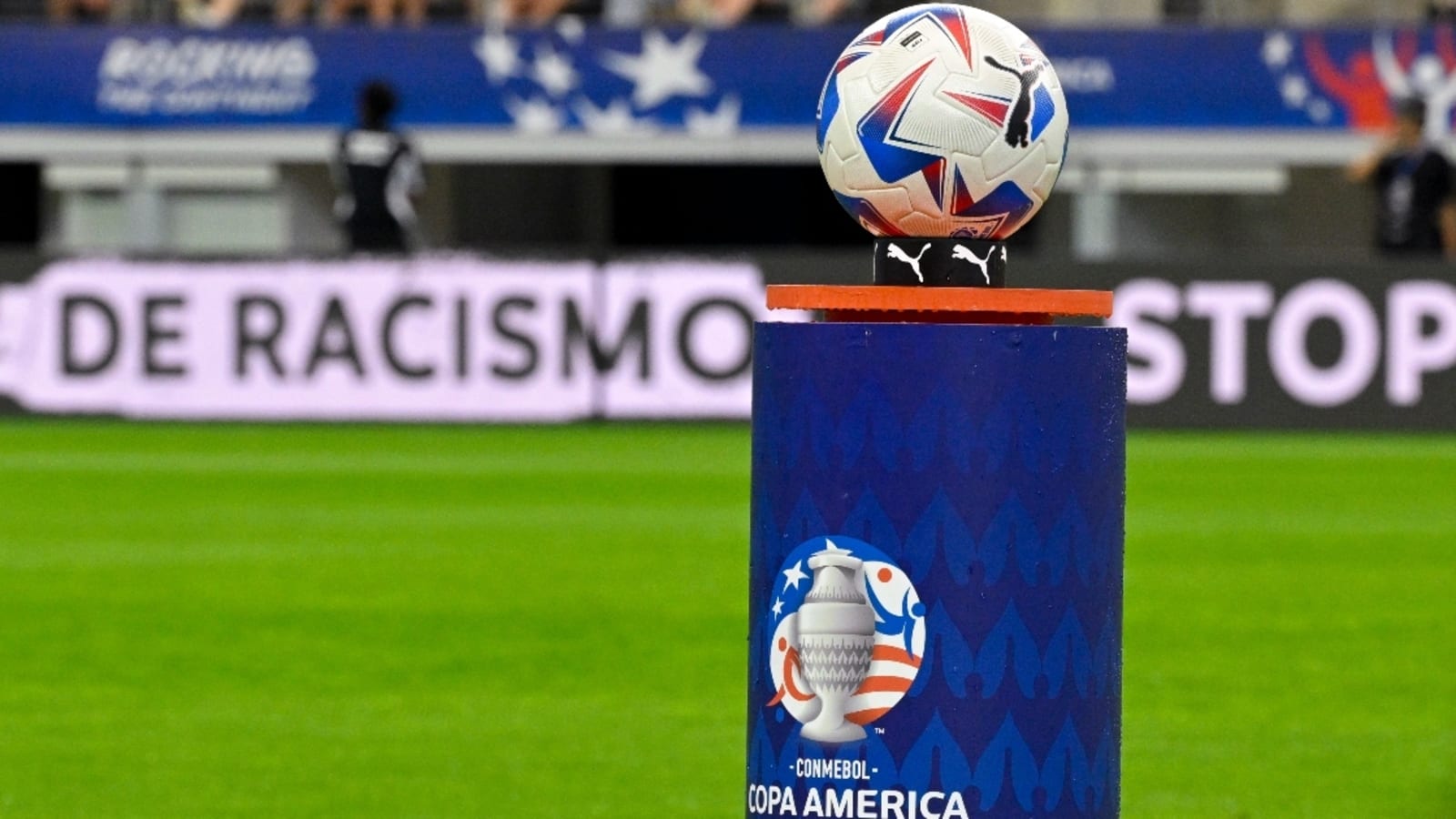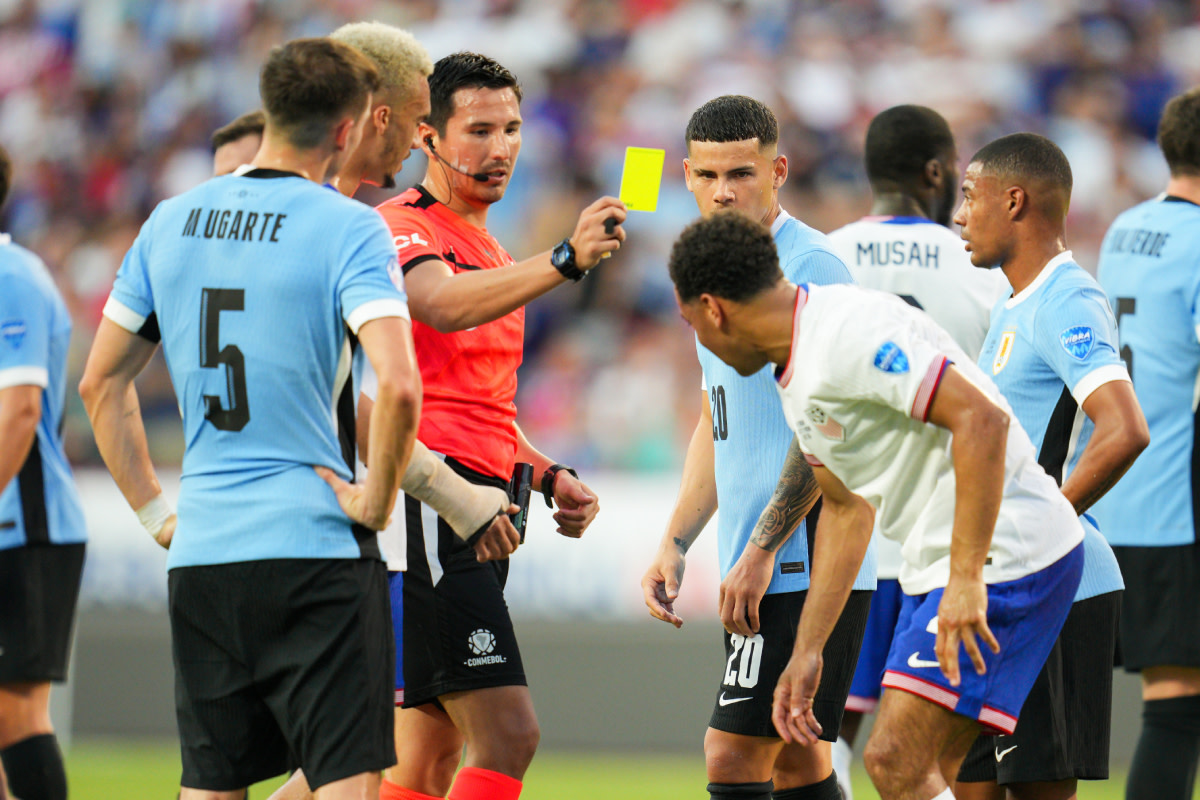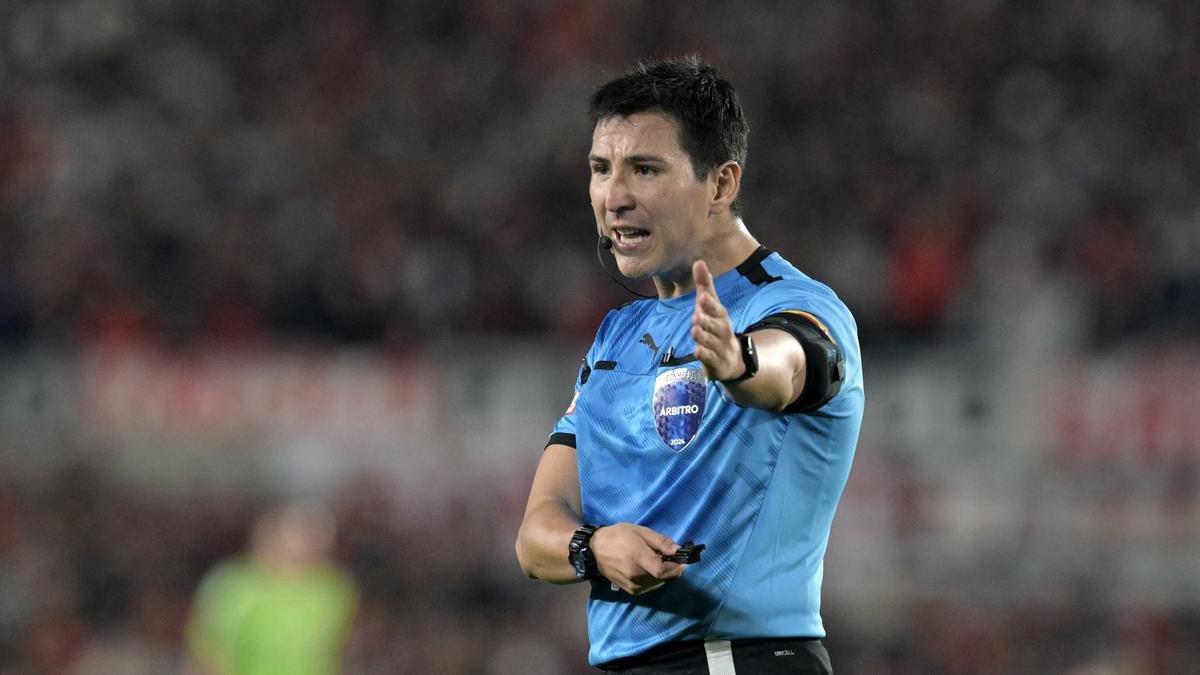The Controversial Refereeing Decisions in the USA vs Uruguay Match: Usa Uruguay Referee

Usa uruguay referee – The match between the United States and Uruguay in the 2022 FIFA World Cup was marred by several controversial refereeing decisions that had a significant impact on the outcome of the game. These decisions included a disallowed goal for the United States, a penalty awarded to Uruguay, and a red card shown to a United States player.
One of the most controversial decisions was the disallowance of a goal for the United States in the first half. The goal was scored by Haji Wright, but it was ruled out for offside after a lengthy video review. The decision was highly contested by the United States players and fans, who felt that Wright was onside when the pass was played.
In the world of soccer, the usa uruguay referee’s decisions have been a topic of much debate. However, beyond the realm of the pitch, there is another team that is also preparing for the future – the usa gymnastics olympic team 2024.
With a focus on training and determination, this team is working hard to make its mark on the world stage. And just as the usa uruguay referee’s decisions will shape the outcome of the game, the performance of the usa gymnastics olympic team 2024 will undoubtedly leave a lasting impact on the sport.
Another controversial decision was the penalty awarded to Uruguay in the second half. The penalty was given after a challenge by United States defender Walker Zimmerman on Uruguay striker Edinson Cavani. The decision was again highly contested by the United States players and fans, who felt that Zimmerman had played the ball cleanly.
The contentious call made by the referee in the USA vs. Uruguay match had sparked outrage, overshadowing the brilliance of the upcoming USA Gymnastics Olympic Team 2024. The team, poised to defend their title, faces intense scrutiny as they prepare for the global stage.
Yet, the lingering controversy surrounding the USA vs. Uruguay match serves as a sobering reminder of the unpredictable nature of sports, where even the most trivial of decisions can leave an indelible mark.
The final controversial decision was the red card shown to United States midfielder Yunus Musah in the second half. Musah was sent off for a tackle on Uruguay midfielder Rodrigo Bentancur. The decision was again highly contested by the United States players and fans, who felt that the tackle was not worthy of a red card.
The controversial refereeing decisions in the USA vs Uruguay match had a significant impact on the outcome of the game. The disallowed goal for the United States and the penalty awarded to Uruguay gave Uruguay a 2-0 lead, which they held on to for the rest of the match. The red card shown to Musah also left the United States with only 10 men for the final 20 minutes of the match, making it even more difficult for them to come back.
The refereeing decisions in the USA vs Uruguay match were met with widespread criticism from players, coaches, and fans. Many felt that the decisions were unfair and that they had a negative impact on the game. The decisions also raised questions about the quality of refereeing in the World Cup and the need for more consistent and accurate officiating.
The Role of VAR in the USA vs Uruguay Match

VAR (Video Assistant Referee) played a significant role in the USA vs Uruguay match, influencing several crucial refereeing decisions. Its usage sparked both positive and negative reactions, highlighting the ongoing debate about its impact on international soccer.
VAR’s Impact on Refereeing Decisions, Usa uruguay referee
VAR was used to review several incidents during the match, including potential penalties, red cards, and offside calls. In one instance, VAR overturned a penalty decision initially awarded to Uruguay, deeming the foul to have occurred outside the penalty area. Conversely, VAR confirmed a red card given to a Uruguayan player for a dangerous tackle, upholding the referee’s on-field call.
Advantages of VAR
- Increased Accuracy: VAR allows referees to review incidents from multiple angles and in slow motion, enhancing the accuracy of their decisions.
- Reduced Bias: By removing the pressure of making split-second calls, VAR can help referees make more objective and fair decisions.
- Improved Consistency: VAR ensures that similar incidents are treated consistently across matches, reducing the likelihood of controversial decisions.
Disadvantages of VAR
- Delays in Play: VAR reviews can lead to significant delays in the game, disrupting the flow and momentum of the match.
- Potential for Inconsistency: While VAR aims to improve consistency, it can also introduce new inconsistencies, as different referees may interpret incidents differently.
- Diminished Referee Authority: VAR can undermine the authority of the on-field referee, as their decisions are subject to review and potential overturn.
Conclusion
VAR remains a controversial technology in international soccer, with both advantages and disadvantages. While it has the potential to enhance accuracy and fairness, it also introduces new challenges and can impact the flow of the game. The ongoing debate about VAR’s role will likely continue as the technology evolves and is used in more matches.
The Impact of the Refereeing Decisions on the USA and Uruguay Teams

The controversial refereeing decisions in the USA vs Uruguay match had a significant impact on the performance of both teams. The decisions affected the players’ psychology, tactics, and the overall outcome of the match.
Psychological Impact
The refereeing decisions created a sense of injustice and frustration among the players. The USA team felt that they were unfairly penalized, while the Uruguay team felt that they were not given enough protection. This psychological impact affected the players’ focus and concentration, leading to mistakes and poor decision-making.
Tactical Impact
The refereeing decisions also had a tactical impact on the match. The USA team was forced to play more defensively after conceding a penalty, while Uruguay was able to take advantage of the USA’s cautious approach. The decisions also influenced the teams’ substitutions and formations, as both teams tried to adjust to the changing circumstances.
Long-Term Consequences
The refereeing decisions could have long-term consequences for both teams. The USA team may lose confidence in the refereeing system, which could affect their performance in future matches. The Uruguay team may become more aggressive in their play, which could lead to further suspensions and penalties. The decisions could also damage the relationship between the two teams and create a negative atmosphere in future matches.